-

w/ Eva Dunsky
Have you ever been infected by a word? I have a memory of a German poet—and I haven’t been able to find this poem—but my memory of the translation is that it included the word “sistercreature.”
Laura Venita Green
Have you ever been infected by a word? I have a memory of a German poet—and I haven’t been able to find this poem—but my memory of the translation is that it included the word “sistercreature.”
-
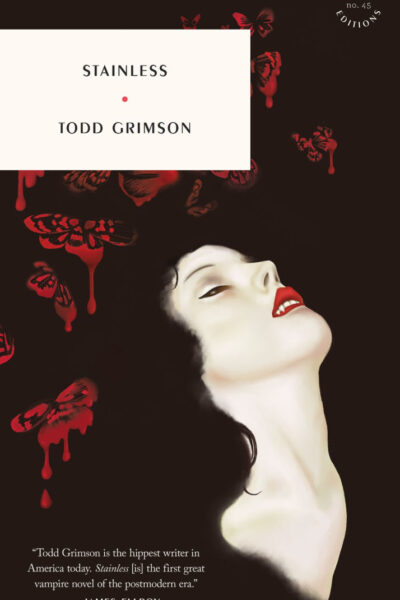
by Max Callimanopulos
The vampire and the ex-rocker make a mournful pair: he with his ruined hands, she with her sad nocturnal life. He needs heroin; she needs blood. He has nothing left to live for; she hasn’t truly lived in centuries.
Stainless – Todd Grimson
The vampire and the ex-rocker make a mournful pair: he with his ruined hands, she with her sad nocturnal life. He needs heroin; she needs blood. He has nothing left to live for; she hasn’t truly lived in centuries.
-
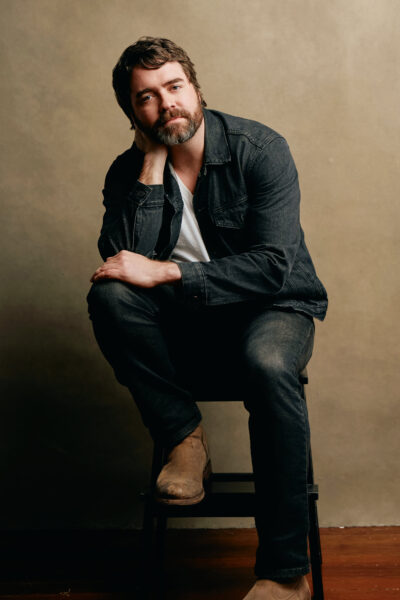
w/ Emily Saso
Anyway. Go forth and hold still to be astonished slowly by paying attention.
Joshua Wheeler
Anyway. Go forth and hold still to be astonished slowly by paying attention.
-
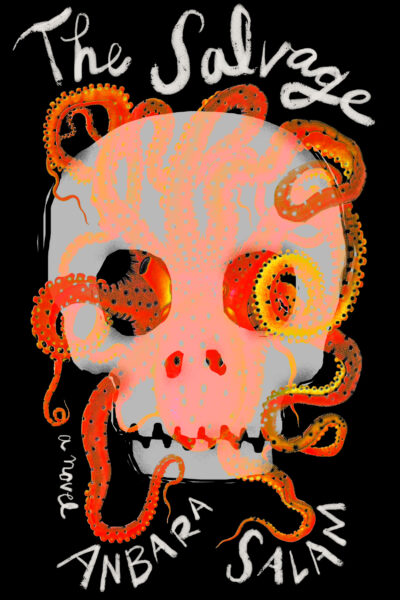
by Alia Spartz
Because we are so close to Marta and her guilt, we see her holding onto anchors that are causing her to sink.
The Salvage – Anbara Salam
Because we are so close to Marta and her guilt, we see her holding onto anchors that are causing her to sink.
-

by Max Callimanopulos
The vampire and the ex-rocker make a mournful pair: he with his ruined hands, she with her sad nocturnal life. He needs heroin; she needs blood. He has nothing left to live for; she hasn’t truly lived in centuries.
Stainless – Todd Grimson
The vampire and the ex-rocker make a mournful pair: he with his ruined hands, she with her sad nocturnal life. He needs heroin; she needs blood. He has nothing left to live for; she hasn’t truly lived in centuries.
-

by Alia Spartz
Because we are so close to Marta and her guilt, we see her holding onto anchors that are causing her to sink.
The Salvage – Anbara Salam
Because we are so close to Marta and her guilt, we see her holding onto anchors that are causing her to sink.
-
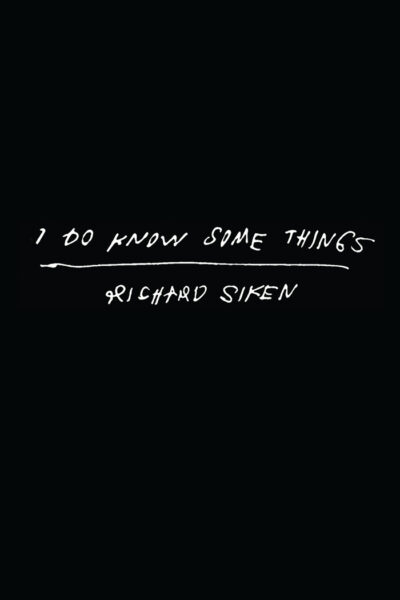
by Daniel Lassell
The story of I DO KNOW SOME THINGS is palpable, welling at every edge with urgency
I Do Know Some Things – Richard Siken
The story of I DO KNOW SOME THINGS is palpable, welling at every edge with urgency
-
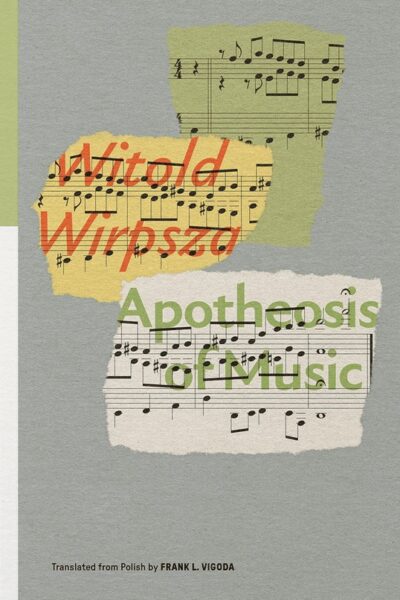
by Danielle Bartholet
For Wirpsza, a fugue can be a person, notes can be nails that stick in one’s head, and God himself can play the piano of humankind
Apotheosis of Music – Witold Wirpsza
For Wirpsza, a fugue can be a person, notes can be nails that stick in one’s head, and God himself can play the piano of humankind
-

w/ Eva Dunsky
Have you ever been infected by a word? I have a memory of a German poet—and I haven’t been able to find this poem—but my memory of the translation is that it included the word “sistercreature.”
Laura Venita Green
Have you ever been infected by a word? I have a memory of a German poet—and I haven’t been able to find this poem—but my memory of the translation is that it included the word “sistercreature.”
-

w/ Emily Saso
Anyway. Go forth and hold still to be astonished slowly by paying attention.
Joshua Wheeler
Anyway. Go forth and hold still to be astonished slowly by paying attention.
-
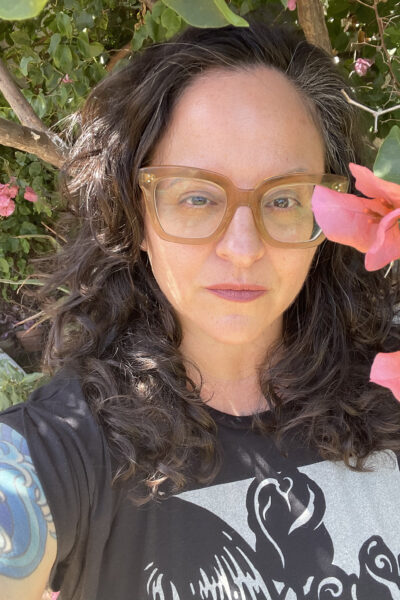
w/ Lexi Kent-Monning
How much of our own life do we try to forget, force away? Wendy C. Ortiz lives in those moments. You can see it in her book Excavation, which details her high school teacher’s grooming of her, as it escalates into a full blown relationship; to Hollywood Notebook, a daily record of her twenty-something self […]
Wendy C. Ortiz
How much of our own life do we try to forget, force away? Wendy C. Ortiz lives in those moments. You can see it in her book Excavation, which details her high school teacher’s grooming of her, as it escalates into a full blown relationship; to Hollywood Notebook, a daily record of her twenty-something self […]
-

w/ Tanisha Tekriwal
You have to let in the world. I have to let in the world in order to get a book to the point that it’s even ready, because I really rely on my readers to help shape it.
Lydi Conklin
You have to let in the world. I have to let in the world in order to get a book to the point that it’s even ready, because I really rely on my readers to help shape it.
-
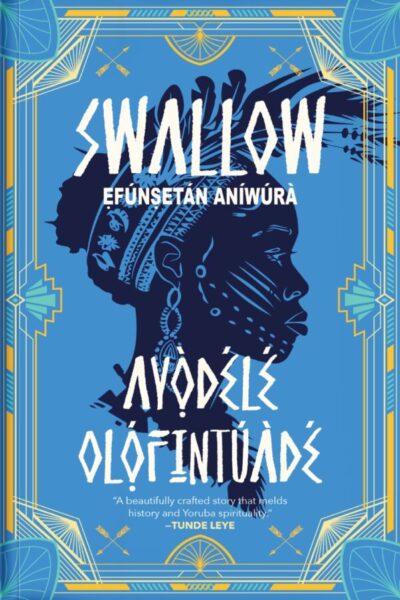
by Azeezah Adekanmbi
Our history is in the bodies they tried to straighten, the stories they would not write, the lives they refused to archive.
The Women We Inherit: Ayodele Olofintuade’s ‘Swallow’ and the Reclamation of Queer Histories
Our history is in the bodies they tried to straighten, the stories they would not write, the lives they refused to archive.
-

by Corley Miller
We were kids together. And now we are not.
Elegy Already: Millennials at Middle Age
We were kids together. And now we are not.
-

by Erin Evans
An oral history is a unique form of nonfiction where, from the beginning, we are given no promise of truth and the editors make no claims toward a clear, ideologically-specific thesis about their subjects.
Mouthing Off: Oral History as an Anticapitalist Form
An oral history is a unique form of nonfiction where, from the beginning, we are given no promise of truth and the editors make no claims toward a clear, ideologically-specific thesis about their subjects.
-

by Olena Jennings
This essay was originally published in the Full Stop Quarterly “Literary Dis(-)appearances in (Post)colonial Cities,” edited by Michelle Chan Schmidt. Subscribe at our Patreon page to get access to this and future issues, also available for purchase here. Ukrainian poetics function as a mode of defense against disappearance and a mode of remembrance in the city. I will address the […]
The Appearance of Urban Memory in Ukrainian Poetics
This essay was originally published in the Full Stop Quarterly “Literary Dis(-)appearances in (Post)colonial Cities,” edited by Michelle Chan Schmidt. Subscribe at our Patreon page to get access to this and future issues, also available for purchase here. Ukrainian poetics function as a mode of defense against disappearance and a mode of remembrance in the city. I will address the […]
-

by Michael Schapira
The following playlist is humbly submitted for your listening pleasure from Full Stop, your full service literary journal. In
20 4 420: Irie Edition
The following playlist is humbly submitted for your listening pleasure from Full Stop, your full service literary journal. In
-
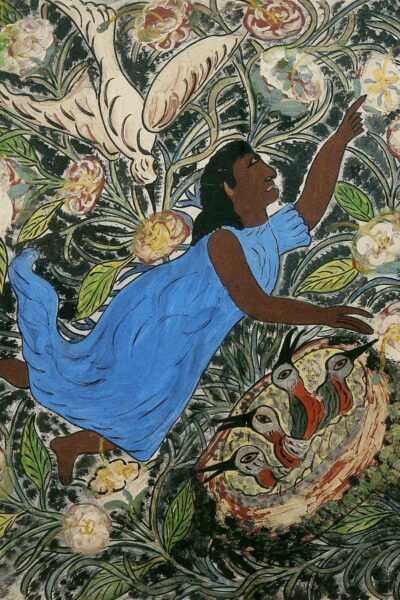
by The Editors
This special issue of the FULL STOP QUARTERLY will aim to hold folklore as a prism through which to view connection, the self, and the future. . . . It will explore folklore in and as literature, as process, and as performance.
Call for Pitches
This special issue of the FULL STOP QUARTERLY will aim to hold folklore as a prism through which to view connection, the self, and the future. . . . It will explore folklore in and as literature, as process, and as performance.
-

by The Editors
In times like ours, times of fracture, depravity and upheaval—times which are really not that different than any other time on earth, except for the speed and scale at which violence is exercised—what is the value of art?
Call for Pitches
In times like ours, times of fracture, depravity and upheaval—times which are really not that different than any other time on earth, except for the speed and scale at which violence is exercised—what is the value of art?
-

by Michelle Chan Schmidt
Read the introduction to our latest issue of the Full Stop Quarterly, “Literary Dis(-)appearances in (Post)colonial Cities.”
Dis(-)appearing Cities or: How I Learned to Stop Walking and Love the Empire
Read the introduction to our latest issue of the Full Stop Quarterly, “Literary Dis(-)appearances in (Post)colonial Cities.”

